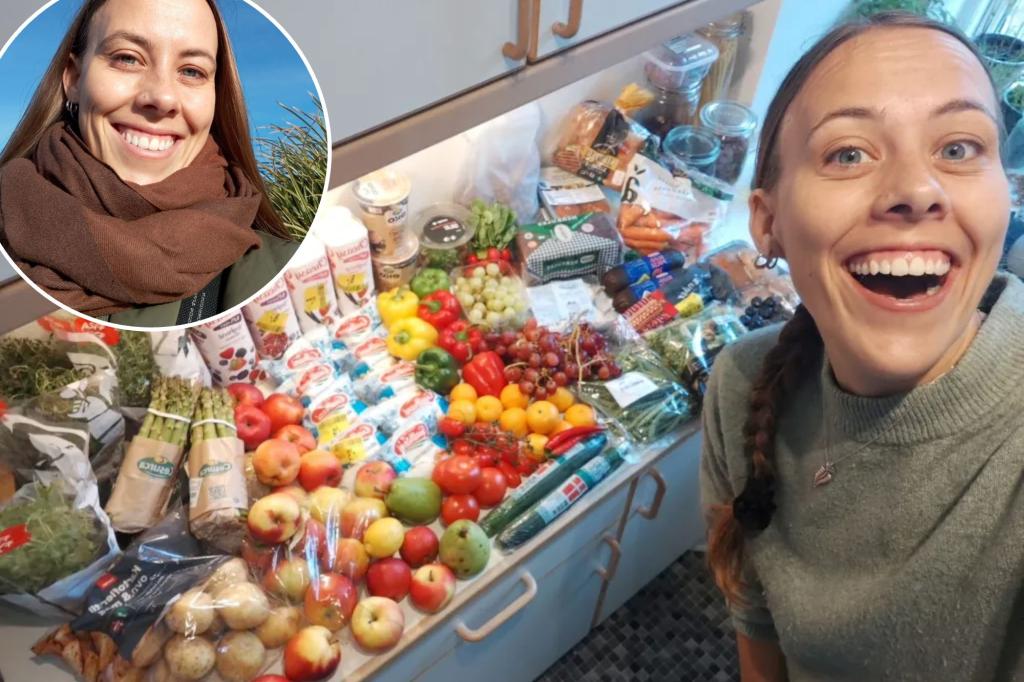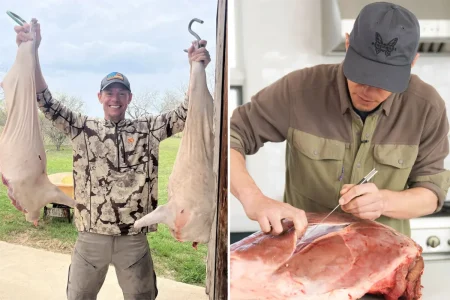Sofie Juel-Anderson, a 30-year-old restaurant manager from Aarhus, Denmark, has revolutionized her approach to grocery shopping, and in the process, her lifestyle. For the past four years, she has completely abandoned traditional supermarket trips for food, opting instead to source her meals entirely from dumpsters. This unconventional practice, known as dumpster diving, began in 2020 while she was living in Sydney, Australia. Initially, she focused on retrieving fresh produce from designated bins, but quickly discovered the potential to acquire a full week’s worth of groceries from discarded items. Now, her supermarket spending is limited to essential non-food items like toilet paper, dish soap, and toothpaste, totaling a mere $99 in 2024. The substantial savings accumulated from bypassing grocery bills have fueled her passion for travel, allowing her to explore various corners of the world.
Sofie’s journey into the world of dumpster diving wasn’t driven by financial hardship; she simply recognized it as a more cost-effective and environmentally conscious alternative to conventional shopping. An initial exploratory trip with a friend to supermarket skips in Sydney solidified her commitment to this practice. The abundance of perfectly edible food, some past its expiration date but much of it still viable, transformed her perspective. What began as an experiment quickly evolved into a regular routine, a treasure hunt that consistently yielded a refrigerator full of provisions. This sustainable approach eliminated the need for traditional grocery shopping, a change she seamlessly maintained upon her return to Denmark in 2022.
The financial benefits of dumpster diving have been profound for Sofie. Her minimal supermarket expenditures, a mere $99 in 2024, underscore the significant savings she has achieved. This financial freedom has translated into a lifestyle rich in travel and leisure. Without the burden of substantial grocery bills, she can afford to work less, dedicating only three days a week to her job, and invest her time and resources in exploring the world and visiting friends. Her travels have taken her to diverse destinations, including Kenya, Argentina, Italy, Spain, and Dubai, demonstrating the transformative impact of her unconventional shopping habits.
The savings from dumpster diving have not only facilitated international travel but have also provided Sofie with greater personal freedom and flexibility. She can dedicate more time to her passions and pursue a less demanding work schedule. This lifestyle choice aligns with her values of sustainability and reducing food waste. By rescuing discarded food, she actively contributes to minimizing environmental impact while simultaneously optimizing her personal finances. This combination of financial prudence and environmental consciousness allows her to live a fulfilling life on her own terms.
Sofie’s passion for dumpster diving has extended beyond her personal life, influencing her family and friends. She regularly prepares meals for them using her foraged finds, showcasing the quality and variety of food available through dumpster diving. Her family, initially perhaps skeptical, have embraced this practice, joining her on dumpster diving expeditions during family holidays. They now collectively contribute to reducing food waste while enjoying delicious meals sourced from discarded items. This shared activity strengthens family bonds while promoting a sustainable lifestyle.
Beyond the personal and familial benefits, Sofie views dumpster diving as a form of activism. She aims to raise awareness about the staggering amount of food waste generated by society and challenge conventional perceptions of food expiration dates and aesthetic imperfections. By demonstrating that perfectly edible food is often discarded, she encourages a shift in mindset towards valuing and utilizing resources more effectively. Her actions serve as a powerful statement against wasteful practices and advocate for a more conscious and sustainable approach to food consumption. Her story is a testament to the power of individual action in addressing global issues like food waste.













